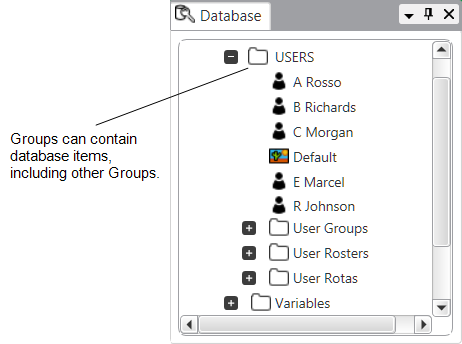This section describes ‘normal’ Groups. ClearSCADA also provides two other types of Groups referred to as Group Templates and Group Instances.
The items in a ClearSCADA database are organized into Groups. These Groups appear as ‘folders’ in the Database Bar, rather like files in folders on a disk.
Each Group can contain both database items and other Groups. You can organize your database into a hierarchy of up to 14 levels of Groups and database items. This allows you to create complex hierarchies that reflect the design of your system. Typically, you use Groups to organize database items according to their geographical location, their type, or their purpose.

The topics in this section explain the activities associated with Groups. For more information, see the topics that are listed in the gray footer section at the bottom of this topic. Select the relevant entry to display the topic that you require.
Each ClearSCADA system includes a Root Group, for which you configure:
- Properties that affect the system as a whole
- The system-wide properties of the Guest User account (the default account that is used whenever a user accesses the system without logging on).
For more information, see Configure the Properties of the Root or System Group.